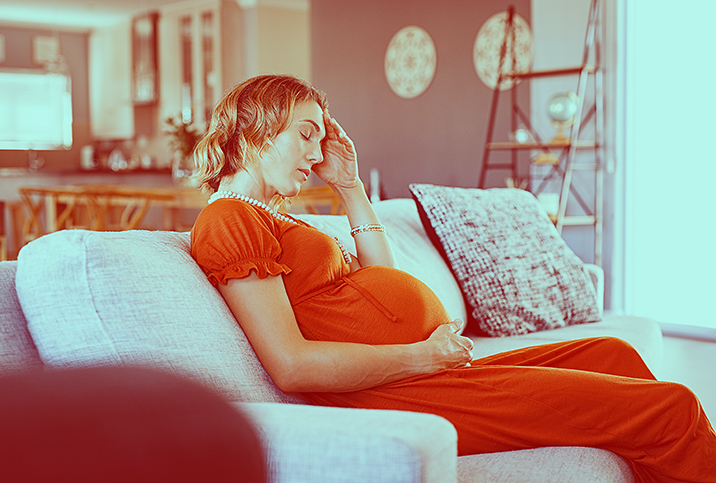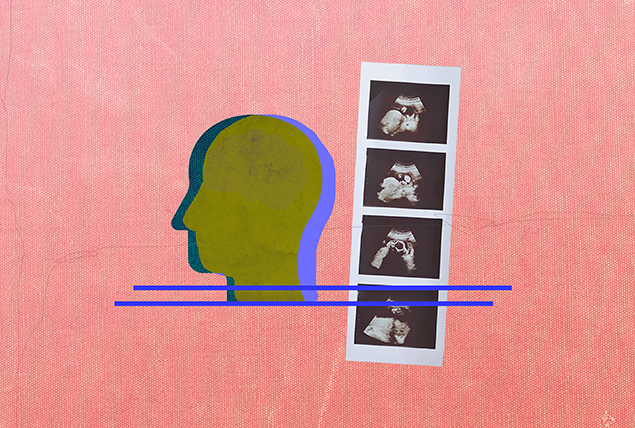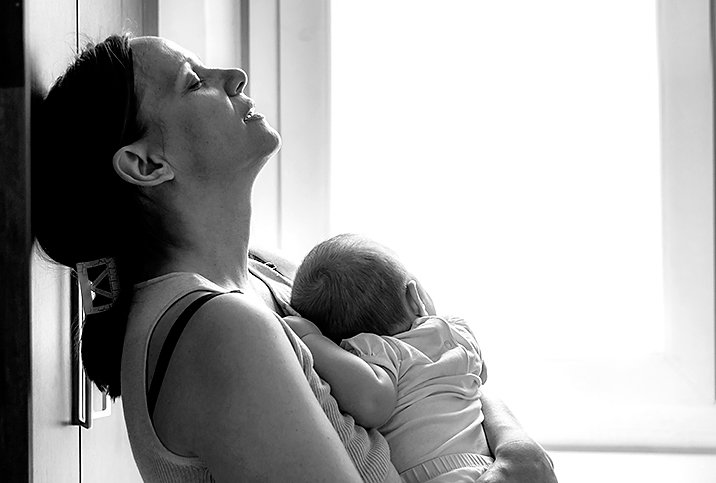Why Is Social Support During Pregnancy So Important?

Pregnancy involves physical and emotional changes. The health of your body is important, but so is your mental health. Part of mental health is interaction with family and friends. Your social network is still important.
Making time for yourself and feeling supported can contribute to better health outcomes—and make a big difference in your overall well-being.
What is the impact of a solid support system?
The arrival of a new baby can bring intense love and happiness, as well as anxiety, depression and exhaustion. In addition, it is often accompanied by social isolation, which can make parents feel lonely, according to Annette Attolini-Fertuck, Ph.D., a licensed clinical psychologist and perinatal mental health specialist in New York City.
One of the keys to improving well-being and mental health lies in social support. Mothers with emotional difficulties who obtained support from other mothers reported feeling less isolated and showed a significant reduction in anxiety and depression scores, according to a program of the National Childbirth Trust.
Higher levels of social support—being around family members and spending time in social groups—may buffer the likelihood of postpartum depression.
"In fact, optimal treatment for postpartum depression includes interpersonal therapy, designed with the goal of helping a woman manage the transition to motherhood, including mobilizing her social support network to help her recover," said Jennifer Reid, M.D., a Philadelphia-based psychiatrist, writer and host of the podcast "The Reflective Doc."
Women benefit from a strong support system during pregnancy and postpartum, Reid said. Some of the reasons for that include the following:
- Healthy relationships can buffer stress.
- A support system can promote healthy behaviors.
- Social interaction can limit the negative psychological effects of loneliness and isolation.
"Motherhood was not meant to be done without support." Attolini-Fertuck said.
What does the data say about the importance of social support?
One-third of women said they needed help with their physical and mental health, according to Motherly's 2019 State of Motherhood Survey Report. Roughly 43 percent of women reported not going out with friends in the previous month.
Almost 4 in 10 mothers, 38 percent, reported feeling completely burned out, according to the 2022 Motherly survey. Meanwhile, 67 percent of moms said they had less than one hour per day to themselves.
Higher levels of social support—being around family members and spending time in social groups—may buffer the likelihood of postpartum depression, according to a 2022 study published in Nature.
"Women with low social support had 4.63-fold higher odds of PPD compared with postpartum women with high social support," the study said.
Low social support affects women in different ways according to the variables involved, the study indicated:
- Women who gave birth to more than one baby had a five times higher risk of postpartum depression if their social support was low.
- Previous experience of pregnancy loss increased 10-fold the likelihood of women experiencing postpartum depression.
- Employed women were 2.8 times more likely to develop postpartum depression. However, social support in the workplace can mitigate the impact of overwork.
There is a clear relationship between social support and good mental health.
How can work provide social support for mothers?
Many women continue working after they give birth, which can intensify the pressure to do everything and do it well and exacerbate depressive symptoms. Although the workplace can lead to high levels of stress, it depends on the environment. It's possible to find companionship and fulfillment through peer support.
"The work atmosphere plays a large role in whether a woman will feel increased stress in the postpartum," Reid said. "Returning to work by choice, rather than being forced to return due to economic pressures, would clearly have different effects on stress levels."
Some of the valid questions you may have about your workspace, according to Reid, include:
- Are there designated areas for pumping?
- Do flexible work schedules allow necessary adjustments based on childcare and other challenges?
- Can you work at your own pace and continue to grow within your position?
How does multiparity affect mental health?
One of the groups most at risk of postpartum depression is mothers with multiparity and low social support. People may think that the mothers of more than one baby are experts and they don't need help, but that isn't always the case.
"The increased financial and emotional demands of caring for multiple children can increase the risk for prenatal/postpartum depression, anxiety and other mental health problems for mothers with low social support," Attolini-Fertuck said.
How does body image affect maternal health?
Body image issues and changes during pregnancy can contribute to depression. But adequate social support can help mitigate negative thoughts.
"Rather than comparing themselves to an ideal body—seen perhaps on social media—they can benefit from the reflections of love and understanding from trusted friends and families," Reid said.
Why is support necessary after a miscarriage or stillbirth?
Women who had a miscarriage or stillbirth may need a lot of social and emotional support as they work through their grief. They can develop postpartum depression. One in 10 women meet the criteria for depression after a miscarriage, according to the MGH Center for Women's Mental Health.
Stillbirth is one of the most devastating experiences someone can go through. Research has revealed these women are at higher risk for perinatal depression and anxiety, Attolini-Fertuck said.
What are some mental health risk factors?
Social support is essential during pregnancy and postpartum, yes, but depression and other perinatal mental health disorders are related to other factors that you should consider as well.
"There is no single cause for postpartum depression, as it is attributed to a combination of genetic predisposition, environmental factors and psychological factors," Attolini-Fertuck said.
Risk factors for postpartum depression, according to Attolini-Fertuck, include:
- Personal or family history of depression (diagnosed or not)
- Depression and anxiety during pregnancy
- Stopping psychiatric medication
- Lack of emotional and financial support
- Stressful events during pregnancy or the postpartum period
- Traumatic birth
- Newborn loss
Can you use medications to relieve anxiety and depression?
It is essential not to oversimplify the decision process around the use of medication for anxiety and depression during the postpartum phase and breastfeeding, Reid said. If you have a mental illness, such as an anxiety disorder, help is available.
"We increasingly have available data to suggest that women can continue a necessary medication for these conditions while also breastfeeding—and the babies can do very well," Reid said.
It can be really dangerous to make this an either-or proposition, especially for those with a history of severe depression, as it perpetuates the message of deciding between breastfeeding and taking medication, Reid said.
Women living with anxiety and depression should speak to a trusted health professional to receive proper treatment.
What are good resources for women needing social support after becoming a parent?
Creating support circles is necessary but can seem impossible. Some of Attolini-Fertuck and Reid's recommendations include:
- Maintain connections with those friends and family who can be supportive, dependable and understanding.
- Meet and talk with other parents in the same situation.
- Don't expect to be able to do it all. Acknowledge that you need help.
- Look for different ways to talk, whether in-person, with a phone call, text message or video call.
- Take time for yourself.
- Communicate your needs.
Attolini-Fertuck suggests some ideas for how to nurture a social support system during pregnancy or the postpartum period to her patients:
- Find local parent groups.
- Try free online support groups, such as Postpartum Support International (PSI) Online Support Group.
- Attend mommy and baby yoga or swim classes.
- Attend breastfeeding support groups.
The bottom line
Becoming a parent is difficult. Whether you've had one baby or multiple, your need for support doesn't change. A lack of social support can really affect your ability to be the best version of yourself during this new and exciting time in your life.
Reach out to your doctor if you're struggling. Treatment is available.




















